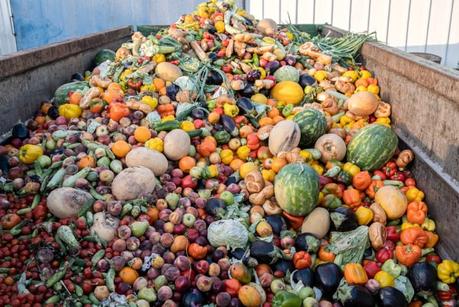
Food waste is a staggering issue that affects our world in ways we might not even realize. Imagine a world where one-third of all food produced never gets eaten-a shame. This is the harsh reality we face today, and the impact is economic and environmental. Here, we look at the problem with food waste on a grand scale, exploring the consequences of this issue and discussing what we can do to tackle it.
The Economic and Environmental Consequences of Food Waste
Food waste costs the global economy upwards of $940 billion each year. It's not just about throwing money away; it's about wasting resources used to produce, transport, and store that food. Water, energy, and labor go down the drain as well.
The environmental impact is equally dire. Decomposing food in landfills emits methane, a greenhouse gas significantly more potent than carbon dioxide. This contributes heavily to climate change and affects ecosystems globally. Factories and farms contribute to this vast problem, creating inefficiencies that ripple through our economies and environments.
The Role of Consumers and Businesses
Consumers and businesses play a major role in food waste. From supermarkets overstocking for the illusion of abundance to individuals buying more than they actually need, waste accumulates rapidly. Changing these habits can significantly reduce food waste. Simple acts such as planning meals, buying only what is necessary, and understanding expiration labels can make a world of difference.
Businesses can also adopt strategies such as better inventory management and rethinking supply chain practices to minimize waste. They can further leverage the power of real-time process measurements to optimize operations and reduce unnecessary waste.
Tech Innovations in Food Waste Reduction
Innovations in technology are paving the way for effective food waste reduction efforts. These advancements include smart fridges that track expiry dates and apps that connect surplus food with those in need.
Process measurements allow businesses to adapt quickly, ensuring efficiency and minimal waste. Such technologies reduce waste while empowering consumers and businesses to make informed decisions. The potential for technology to reshape food waste practices is immense and encourages further innovation-commanding a need rather than a want.
Global Efforts in Tackling Food Waste
Around the world, initiatives and partnerships aim to combat food waste on a grand scale. Organizations such as the UN are setting ambitious goals to halve food waste by 2030. These collaborations involve governments, businesses, and individuals working together to find solutions.
Participating in local food rescue programs or supporting sustainable practices can make a significant difference. The collective effort of these initiatives inspires change and demonstrates the power of community action.
Addressing food waste requires urgent attention and action from all of us, even those of us who love food and its potent medicine. The problem may seem too large to tackle, but every small step counts. By making conscious choices about purchasing and consuming food, we can collectively reduce waste. Let's work together to create a sustainable future where the problem of food waste becomes a thing of the past.

